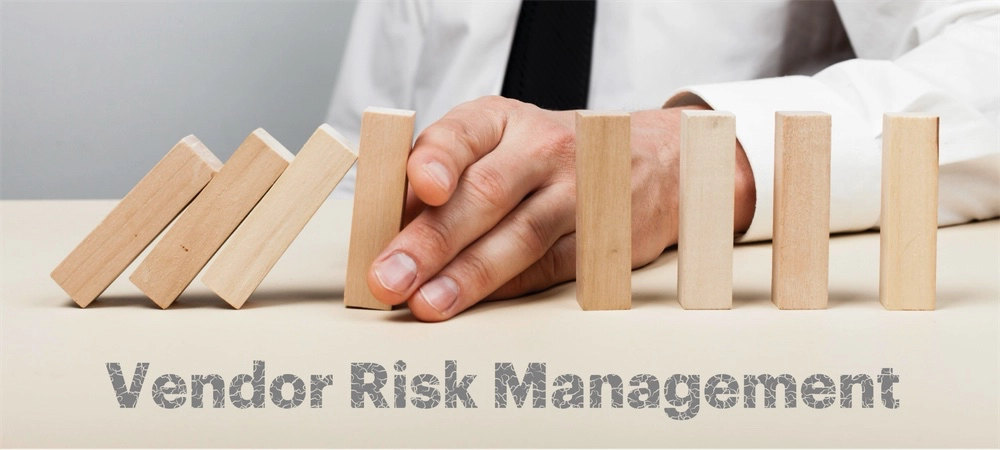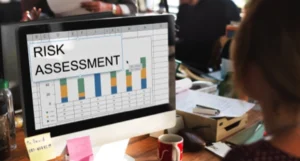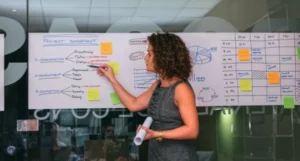Vendor risk management: A winning strategy for all

Table of contents
Finding good talent isn’t always possible within an organization’s geographical sphere. And many organizations are turning to external partners or third-party vendors to provide support via goods or services. Today, the global outsourcing market is worth $92.5 billion, and 66% of businesses in the United States outsource at least one department.
But time is money, and data security is critical, making it challenging and time-consuming, not to mention risky, to find the right vendor for your business. You need to evaluate the selection on best value, quality and reliability, while also identifying vendors who reflect the same ethics as your brand. How do you entrust your business and reputation to a business partner without due diligence?
This is where vendor risk management comes into play. Simply put, this is a process that helps you vet the possible risks of future business partners or third-party vendors, not just before getting into a relationship with them, but also for the entire duration of the business contract. Why is this critical, you might ask. Engaging with a vendor creates dependency and opens the doors to potential vulnerabilities with the vendor. When you consider a business’ reliance on data and cyber security today, the threat of severe financial impact, not to mention reputation damage, that a risky vendor can invite becomes apparent. An effective vendor management system can mitigate such risks, prepare you for vulnerabilities and avoid inconvenient business disruption before beginning a partnership.
How can you build an effective vendor risk management process?
Vendor risk management is a proactive approach (and not a reactive tactic) that a business must take to identify risks, vulnerabilities and potential threats to protect itself.
The world is increasingly getting more enmeshed and interconnected, with global supply chains and ceaseless flow of data. The business and the vendor should enter into a contract that outlines the relationship that will exist between the two parties. There need to be clear guidelines that indicate what data is being processed, and who has access and control of sensitive information, both at the organizational level and at the vendor’s side.
One of the most critical components of vendor risk management is your vendor’s cybersecurity program. Can you be sure that they’ll be able to secure your data, both from a physical and cybersecurity perspective? Whether it’s financial data or identity information, a vendor using an unsecured port can leave your and your clients’ information open to theft, not to mention, expose your business to legal problems.
Additionally, the vendor must be aware of and agree to comply with all regulations related to your industry or government. Keeping up-to-date on any changes and revising their policies to adhere to these directives must also be the responsibility of the vendor.
As a business, it is important to ensure that all these contract requirements are met by the potential vendor. Regular performance reviews can help stay ahead of likely issues which can then be proactively addressed.
Vendor Risk Management: tackling potential vendor risks
There are a few risks that relationships with vendors and third parties can expose your business to. Here’s a look at some of the more critical ones:
Third-Party Legal Risk
Sharing sensitive client information with vendors comes with several legal risks. If your vendor’s security is breached, and your client’s personal information, such as social security numbers, financial data or health records gets leaked, the law will hold you responsible, and not the vendor. You will need to detail out security expectations clearly in the contract to counter legal risk.
Third-Party Reputational Risk
The reputation of a third-party vendor is relevant to the vendor risk management process. Gather as much information as possible at the start of the procurement process to ensure the potential vendor is compatible with the values and expectations of your organization. Check the news to look for any legal entanglements that a future business associate might be involved in since this can impact their performance while contracted with you. An insecure vendor’s failure to protect sensitive information can also damage your reputation.
Third-Party Financial Risk
Another important aspect of vendor risk management is doing a full background check on the vendor’s financial history and past performances. One way of doing this is by conducting credit monitoring. You can also ask for references from other businesses that have worked with the vendor earlier.
Third-Party Cyber Risk
While most risks require a background or past performance check, there is one that needs periodic updates. Cyber risk is one such area of vendor management that has the potential to damage your organization at a moment’s notice. Cyber security can pose functional, financial, legal and reputational risks for your organization. You cannot simply rely on a one-time audit or snapshot of the vendor’s capabilities. There are current risks and there are potential risks that can have a significant impact on your business.
Cyber risk management is an ongoing process that calls for persistent monitoring and awareness. There are numerous tools and security ratings that can keep your team up-to-date on the vendor’s security program. In fact, vendor risk doesn’t end at your contracted vendor. Depending on the type of data or level of access, there could be another layer of vendors in the vendor ecosystem. This calls for fourth-party risk management that must assess your vendor’s vendors to truly understand the risk exposure.
You and your team must have clarity at all times about who is accessing your network, whether they are authorized or not, and if their actions have the potential to jeopardize your most important data. Any incident can impact your business financially or legally, and can also damage your reputation adversely.
Cyber risk: why vendor risk assessment is important
Some losses from a vendor’s lack of performance are easier to manage. A delayed project can be given some more time, or a missing caterer means dealing with a bit of an inconvenience and slight loss of face. In such cases, you can take remedial action and salvage the situation without dramatically impacting the bottom line.
Cybersecurity risks, on the other hand, are not as easy to resolve. If your corporate network gets hacked through a vendor’s weak cybersecurity system and your precious data is stolen, the result would most likely be disastrous. The financial and legal ramifications could be huge, and your reputation can be permanently damaged.
This is why vendor risk management, especially IT risk vendor management, is critical. Before getting a vendor on board, however large or small, you must examine all angles and IT security risks to avoid vendor risk assessment oversight.
ProHance Partner Ecosystem Management can help you manage your expanding vendor ecosystem with ease and confidence.



